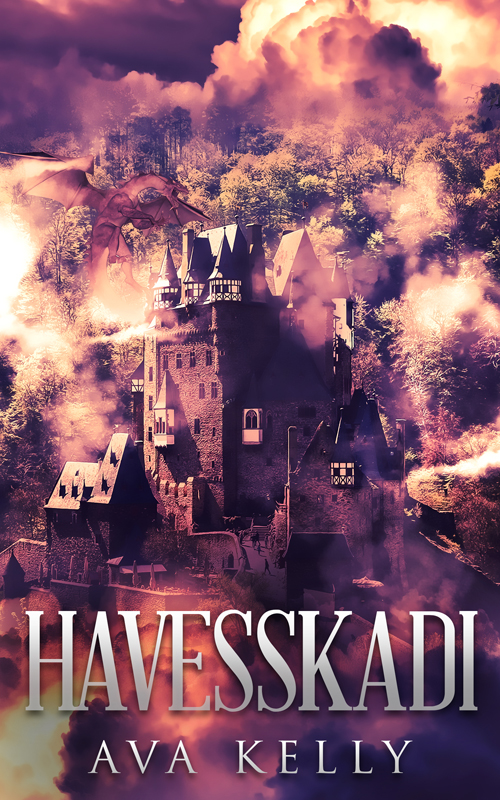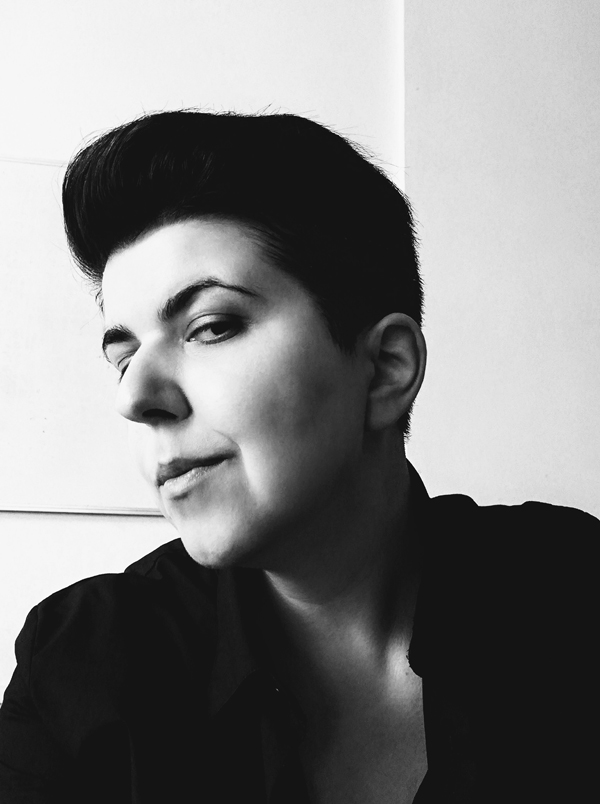Welcome to my weekly Author Spotlight. I’ve asked a bunch of my author friends to answer a set of interview questions, and to share their latest work.
Today, Ava Kelly – Ava Kelly is an engineer with a deep passion for stories. Whether reading, watching, or writing them, Ava has always been surrounded by tales of all genres.
A giveaway will run between August 11thand 18th. Details will be published on August 11that www.avakellyfiction.com/news
Thanks so much, Ava, for joining me!
J. Scott Coatsworth: Why did you choose to write in your particular field or genre? If you write more than one, how do you balance them?
Ava Kelly: I’m in awe of the expanse of human imagination. It is a sublime slate that lifts us from the reality we’re experiencing daily toward realms as unlimited as the wildness of our most unchained dreams. So naturally, I drift toward the speculative.
The fantastical has always been there for me. I started off with fairytales and dragons and ice queens. The impossible becomes plausible, myths are created, always in the dead of night; stories told and re-told during long winter evenings, fear licking at the back of the audience’s necks, raising dreaded awareness of the shadows down the road. I come from a land of storytellers, where the veil between fantasy and reality is thin. Magic is rooted in this culture, perpetuated through belief.
I remember, long ago, I found a part of a book. It was tucked between two others, this facsimile of torn out pages, no cover, no title, no author. I started reading, curious. The story was about explorers on a planet, their struggles, their trek; but I couldn’t really understand: who was telling the tale? Then, many words later, it dawned on me. The planet was sentient. That’s when I fell in love with science fiction, I reckon, in that small moment that shifted my perspective and made me go Oh!with unabated wide-eyed surprise.
Speculative fiction, and in particular sci-fi and fantasy, this is what I write. Balancing them is easy, because what is magic if not technology we can’t yet comprehend? And I do it because I wonder, what are the limits of my imagination? How far does it go? Let’s discover together.
JSC: Are there underrepresented groups or ideas featured in Havesskadi? If so, discuss them.
AK: Yes, representation is dear to me. Asexuality (the lack of sexual attraction) is explicitly stated and defined. Dragons are ace in Havesskadi‘s universe; they’re not necessarily the only ones in this realm, but hey, the story is about dragons. It’s important. I’m ace, too, and books with ace rep aren’t all that many—yet, hopefully. Pansexuality and panromantism are both present; the two main characters are one or the other. A little off-page, there’s a hint to transgender characters; not so much explored in Havesskadi, but an important part of the planned sequels is a nation embracing multiple-parent families and with embedded cultural respect toward transgender people.
JSC: What is the most heartfelt thing a reader has said to you?
AK: It happened several times and each one made me tear up. I was told variations of this—this thing that exposes the most powerful of all connections between writer and reader. I was told people found themselves in my characters, in being ace or trans or simply different than what mainstream media showcases. This is what keeps me writing, even when writing is hard. It’s been important to me to recognize parts of myself on screen or on pages; it shaves off some of that grating feeling of isolation when the real life circumstances surrounding us are not all that inclusive or understanding or alike.
JSC: What was one of the most surprising things you’ve learned in writing your books?
AK: The surest way to put emotion on paper is to let myself feel it. In my mind’s eye, I live the scenes from all perspectives before returning to the point-of-view character. Then, because perception is limited in most entities, I let myself understand the context through their senses. As a writer, if you want to choke your reader with tears, with laughter and brilliance and grief, you have to be ready to break yourself apart first. Rip your chest open, let yourself bleed raw, feel the itch of healing and the hope of a better day. Be alive, alight.
JSC: What were your goals and intentions in Havesskadi, and how well do you feel you achieved them?
AK: The whole Havesskadi story started off as a subversion of the Beauty and the Beast trope. There is a magic castle, there’s someone stuck there against their own will, and there is a curse. A transformation happens. Those elements remain. The end result, however, shows this trope flipped and rotated and inverted on most of its axes. I’m quite content with the outcome.
Another concept I wanted to explore here is solitude. Both protagonists are defined by it, in different ways. One of them is driven into perceived-isolation against his will and desires escape, if only to shut out the push and pull of unwelcome companions. The other is forcibly ejected from his safe haven. They fight, either for it or against it, continuously. They despair and almost give up, frustration and sadness taking hold. Hope, however—hope!—is there. They keep going. They never give up. Even mistrustful, they learn to lean on each other; and in the end… spoilers, sweetie.
JSC: Were you a voracious reader as a child?
AK: Incredibly. I read everything I could get my hands on, as long as it was fiction. In the summer I used to spend the days and nights reading, curled up in an armchair, hidden away from chores. It extended well into the teenage years; it was definitely more fun reading Dumas than my history class notes. And I guess I never really escaped this intense summer feeling. Nights immersed in other universes and sleepy slow days come with the heat of July and the thunderstorms of August. It’s ingrained in my bones.
JSC: What pets are currently on your keyboard, and what are their names? Pictures?
AK: This is more of a rubber-ducky situation—a little critter with eyes to talk to while debugging code. They work just as well when working on stories, because what is a program if not an executable story, after all? Mine is called Darkness, a gleaming crystal skull that fits in the palm of my hand. It’s also a 3D puzzle, so it comes apart and back together along with my plotlines, if needed.

JSC: What other artistic pursuits do you indulge in apart from writing?
AK: Part of my education happened at an art school. I studied both visual arts and music and that bled into my artistic endeavors over the years. My main specialty is conceptual photography and still life. When it comes to hand drawing, I’m still enamored with alienesque landscapes of sentient plantlife. I even did live VJ work for a while, during concerts and other performances, composing visual stories to the beat, fast frames flashing with the undulating rhythms of the music. It’s captivating, in the moment, draining in that satisfying way that creation can be.
JSC: Would you visit the future or the past, and why?
AK: The future. I’m too curious over the unending possibilities opening before us. Will we have succeeded in making our planet uninhabitable, or will we manage to put aside petty fear and gratuitous cruelty and embrace our differences instead? I must know.
JSC: What are you working on right now?
AK: On the science side, I have some important results to publish, so I’m working on that. Writing scientific text requires quite a different mindset than fiction. There’s a story there, but the language and the words have to coalesce into predefined structures that are a lot less flexible than literary ones.
For the storytelling soul, there are several projects on my plate. Right before the time of this interview, I’ve been heading full speed toward finishing the third installment of my holiday series, Snow Globes. Beyond that, I’m writing more speculative flash fiction these days, and I plan to post most of those either on my website (avakellyfiction.com) or on Patreon. I have three more novels in development. One of them is a sequel to Havesskadi, showing the protagonists enjoying the freedom they achieved at the end of the book and a new adventure for them as they try to reconnect with the world. The other two are science fiction (one set in space, the other near-future), dealing, in their own way, with universes torn apart by conflict and with lives torn apart by faulty social systems.
Thank you for having me here! Have lovely summers and winters, everyone!

And now for Ava’s new book: Havesskadi:
Nevmis, the red dragon, is hunting her own. Up in the icy peaks of the northern mountains, Orsie spends his lonely days hiding from her, but eventually he is found and his dragon magic stolen. Cursed to wander the lands as a mortal unless he recovers his magic before twenty-four rising crescents have passed, Orsie embarks on an arduous journey. Spurred by the whispers in his mind, his quest takes him to a castle hidden deep in a forest.
Arkeva, a skilled archer, is trapped in an abandoned castle deep in the woods, his only company two entities—one kind, the other cruel. Then a stranger arrives, a young man who soon finds himself confined by heavy snowfalls—and in danger from what slumbers in the shadows of the castle.
It is with undiluted sadness that we received the announcement from LT3 Press that they are closing. As such, Havesskadi is not currently available to buy while it is transitioning to another publisher. A giveaway will run between August 11thand 18th. Details will be published on August 11that www.avakellyfiction.com/news
Excerpt
The market square bustles with life, hooves and shouts and clatter, in the rich colors of autumn. In the middle, near the fountain, an old man stands on a crate, waving his cap at the gathering crowd. Orsie hides his face further behind his long hair, with only half a mind to listen to this unexpected storyteller. His voice is loud over the mid-morning racket, though, drawing Orsie’s attention.
“Hear me, hear me! In an age long ago, far beyond the Quiet Lands, there lived a dragon. He wasn’t a mighty dragon—”
Laughter fills the square, covering for a while, the voices of the merchants. Orsie frowns, eying the derision that sweeps over many of the onlookers. It’s unpleasant. Orsie remembers from past visits that it’s a rare occurrence for the village to be this animated, but he doesn’t recall its inhabitants being this bitter. Haumir, sitting at the foot of Ahrissals’ highest peak, is isolated for most of the year. No trade roads pass through, even though they used to, back when the Seaborn were friendlier. Perhaps that’s the reason. Their lives aren’t easy this up north, but it’s not something Orsie can change. Not really.
“—or a mean dragon—”
Someone hoots and Orsie stifles a grimace. So much for storytelling. He turns his attention back to the row of tables displaying his favorite autumn fruit. Apples, red and yellow and sometimes green, brought north by the caravans that begin their journeys in the hills of Uvalhort. They carry the excess of the plentiful orchards there, sure to be sold quickly in this barren land. Overpriced, too, by the look of it. Orsie only has a few amethyst shards with him, more than enough to pay for his indulgence, but not too polished and not too pure. He wouldn’t want to raise suspicion.
“—but he liked the frost and the cold bite of the highest mountain tops!”
Orsie shrugs as he sniffs at an apple. Some dragons do like the snow. He spares a glance at the storyteller. His hat now sits on the ground before him collecting donations, ineffectively. Orsie sighs. Dragons aren’t very loved in these ages.
“And his name was Havesskadi, the shadow of the icy peaks. He has graced our village from his home above the clouds,” the old man continues, arms raised to point at the mountain standing tall to the north.
“There’s no dragon up there, you old fool,” someone shouts, “or we’d be rich!”
The old man waves a hand, annoyed. “Havesskadi lives, you’ll see. He’ll fly down from his castle and shower us with gems.”
“Dragons don’t care about us,” the other yells back.
“There’s a reason for that,” the old man says. “We hunted them and they hid.”
“Don’t remember no hunting,” someone else says, but Orsie stops listening.
Shaking his head, he slips out of the square. He can shop for apples later, after the ruckus has died down. Instead, he makes his way through the narrow streets, dropping some of the smaller amethyst shards on doorsteps or window sills. It’s not enough to make the dwellers rich, but just what they’d need to push through winter. The cold season comes early, here, the icy winds of October around the corner, and Orsie can’t help himself. He’s been observing the villagers for the past few days, lodging at the inn; now he knows just where to plant these lucky finds.
Author Bio
Ava Kelly is an engineer with a deep passion for stories. Whether reading, watching, or writing them, Ava has always been surrounded by tales of all genres. Their goal is to bring more stories to life, especially those of friendship and compassion, those dedicated to trope subversion, those that give the void a voice, and those that spawn worlds of their own.

